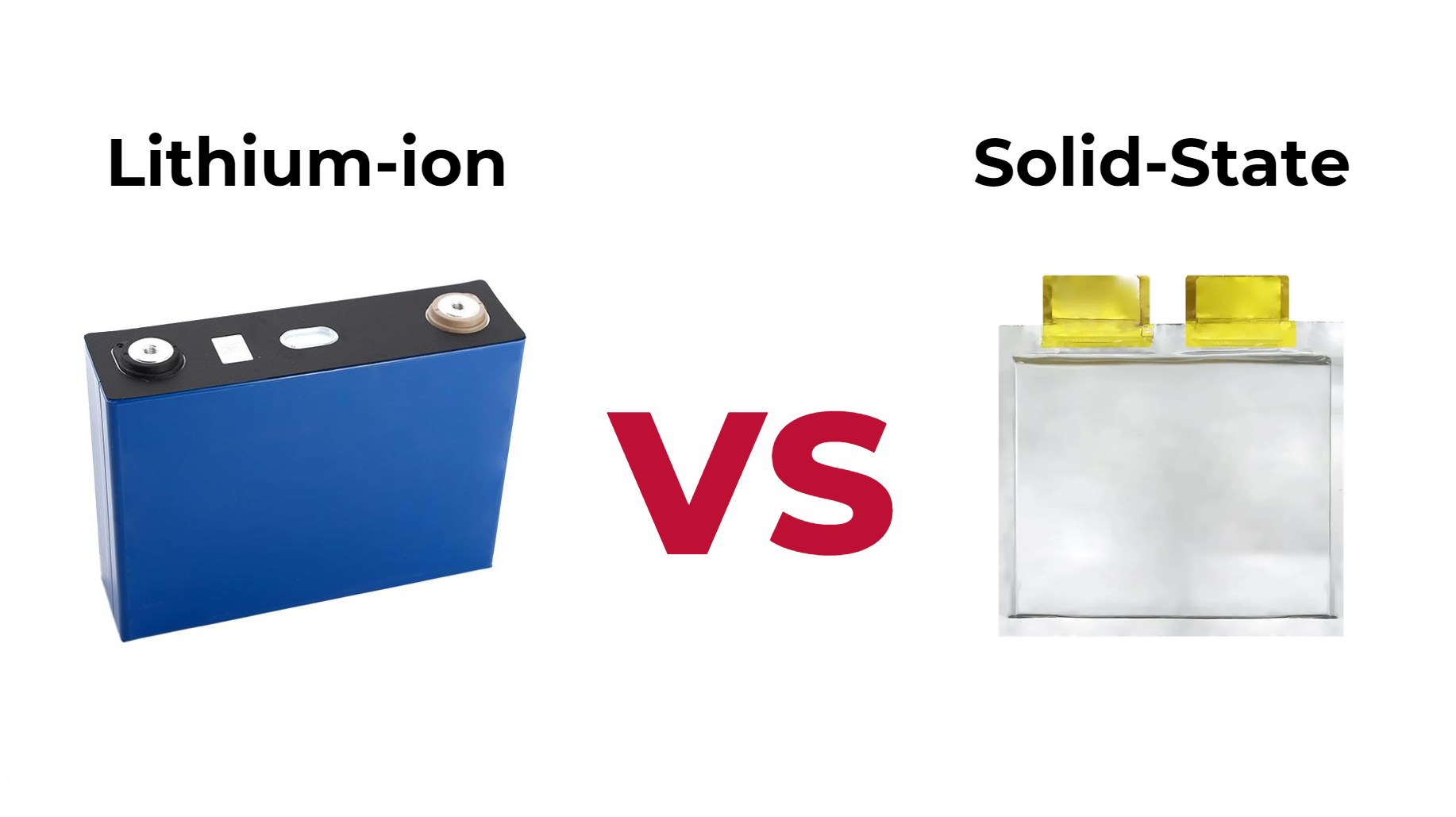In the realm of energy storage, solid-state and lithium-ion batteries represent two prominent technologies, each with distinct characteristics and applications. As we explore these differences, we will highlight the advantages and challenges associated with each type, offering a comprehensive comparison to help stakeholders make informed decisions.
Solid-state batteries differ from lithium-ion ones primarily by using a solid electrolyte instead of liquid. They offer higher energy density, enhanced safety by eliminating flammable liquids, faster charging speeds, and longer lifespans due to reduced wear during cycles. These advantages position them as a promising alternative for future energy storage solutions.
Understanding Lithium-Ion Batteries
Lithium-ion batteries have become the standard for many applications due to their proven reliability and performance. Here are some key aspects:
- Electrolyte Type: Lithium-ion batteries use liquid or gel electrolytes, which are integral to their function.
- Energy Density: They offer a moderate energy density, typically ranging between 250-300 Wh/kg, which supports a range of devices from smartphones to electric vehicles.
- Safety: While generally safe, lithium-ion batteries carry a risk of thermal runaway and fire, particularly if damaged or improperly handled.
- Charging Speed: Charging times can be relatively slow, often requiring several hours to reach full capacity.
- Cycle Life: These batteries generally provide 1,000 to 2,500 charge cycles, depending on usage and maintenance.
- Cost: Due to established production processes, lithium-ion batteries are relatively affordable, making them a popular choice.
- Weight and Size: They tend to be heavier and bulkier because of the liquid components.
- Temperature Stability: Performance can degrade in extreme temperatures, which may limit their effectiveness in certain environments.
Exploring Solid-State Batteries
Solid-state batteries represent a newer technology with potential advantages over traditional lithium-ion batteries. Key features include:
- Electrolyte Type: These batteries utilize solid electrolytes, such as ceramics or glass, eliminating the need for liquid components.
- Energy Density: Solid-state batteries boast a higher energy density, often exceeding 500 Wh/kg, which can translate into longer operational times or greater energy storage in the same volume.
- Safety: The absence of flammable liquid electrolytes significantly reduces the risk of fire and thermal runaway, making solid-state batteries a safer choice.
- Charging Speed: They offer the potential for rapid charging, with times potentially reduced to as little as 15 minutes.
- Cycle Life: Solid-state batteries may provide a longer cycle life, potentially enduring up to 3,000 charge cycles before performance degradation.
- Cost: The technology is still emerging, leading to higher costs compared to lithium-ion batteries due to the complexity of production.
- Weight and Size: With solid electrolytes, these batteries are generally lighter and more compact, allowing for more efficient design.
- Temperature Stability: Solid-state batteries perform better across a wider range of temperatures, enhancing their reliability in diverse environments.
Advantages of Solid-State Batteries
Higher Energy Density: The increased energy density of solid-state batteries allows for extended ranges in electric vehicles and more efficient energy storage solutions. This makes them a promising option for applications requiring high energy storage.
Enhanced Safety: The elimination of flammable liquids in solid-state batteries addresses many safety concerns associated with lithium-ion technology, making them suitable for high-risk environments.
Faster Charging: The potential for rapid charging can significantly reduce downtime and improve user convenience, addressing one of the main limitations of traditional batteries.
Longer Lifespan: With a longer cycle life, solid-state batteries can provide more durable performance, reducing the frequency of replacements and long-term costs.
Thermal Stability: Better performance across various temperatures enhances reliability and operational efficiency, particularly in extreme or fluctuating environmental conditions.
Challenges Facing Solid-State Batteries
Manufacturing Complexity: Producing solid-state batteries involves more complex and costly processes compared to lithium-ion batteries. This complexity can hinder widespread adoption and scale-up.
Limited Scalability: Current manufacturing methods for solid-state batteries are not yet optimized for large-scale production, presenting a challenge in meeting growing market demands.
Dendrite Formation: Despite their safety advantages, solid-state batteries can still experience dendrite growth, which may lead to short circuits and reduced battery lifespan if not properly managed.
Conclusion
In summary, while solid-state batteries offer substantial benefits over lithium-ion batteries in terms of energy density, safety, and lifespan, they face significant challenges related to manufacturing and scalability. Lithium-ion batteries, with their established technology and affordability, continue to be the dominant choice in many applications. However, as solid-state technology matures, it holds the potential to transform various sectors, particularly electric vehicles and portable electronics.
Redway Battery has been at the forefront of exploring advanced battery technologies, including lithium LiFePO4 and emerging solid-state solutions. Our extensive experience and commitment to innovation ensure that we offer cutting-edge battery solutions tailored to meet the evolving needs of businesses worldwide. For more information or to request a custom battery solution, contact us today for a quick quote.




